REGIMENTAL MUSTER ROLL
Today's 67th New York
One of the main duties of a re-enactor in the New 67th NY is to adopt the name and persona of a soldier in the Original 67th NY. Every Civil War regiment had an attendance sheet called a ‘muster roll’ recording the status of a soldier, whether present, missing, on sick leave, or killed in action. These muster rolls were taken at periodic intervals through the War’s duration, chronicling the toll of battle, displaying graphically how the ranks were depleted through sickness, death, or desertion. Thankfully, the original muster rolls for our regiment survived the passage of time and have fallen into our hands (or at least the copies) so that we might know the original men on a first name basis. Together with paperwork provided by the National Archives in Washington, such as pension records, we’re able to build a profile of the soldier we strive to emulate.
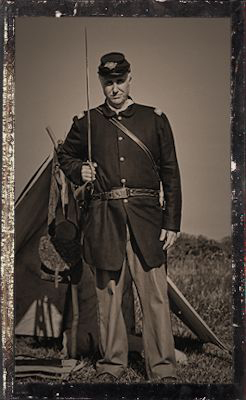
Captain
George W. Stillwell
real name
Tom Demaria
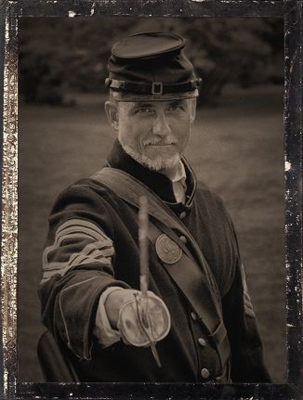
Lieutenant
(Secretary)
William Kent
real name
Max Kenny
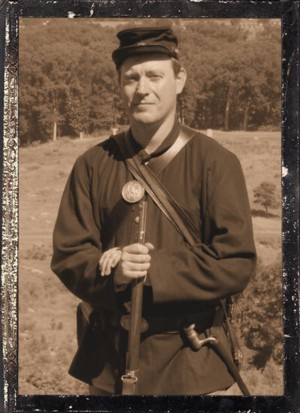
First Sergeant
Robert Moyer
real name
Jeff Speight
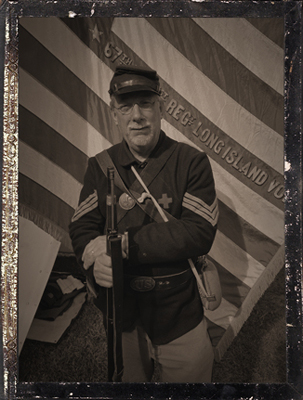
Second Sergeant
(President)
Jacob Coleman
real name
Richard Coleman
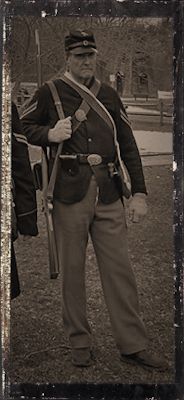
Corporal
Cornelius Regan
real name
Ron Ottone
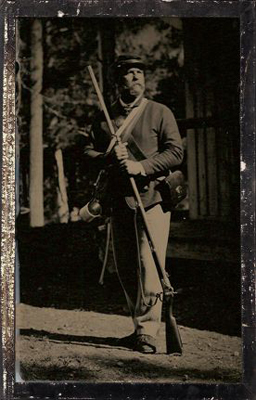
Quartermaster Sergeant
(Treasurer)
Thomas Badamo
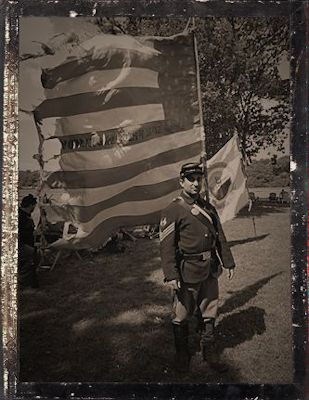
Color Sergeant
Dan Blander
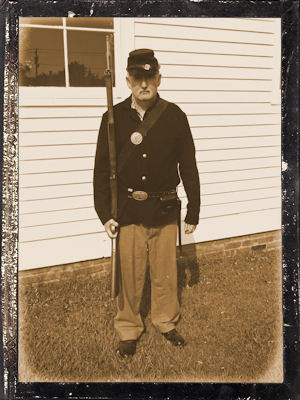
Provost
Brian Bennett
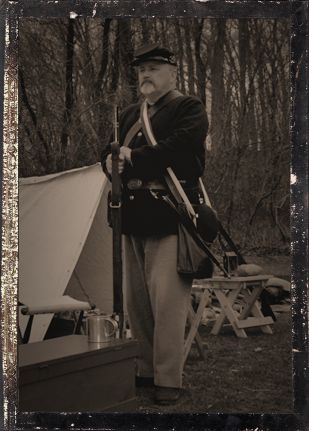
Commissary / Sergeant
(Vice President)
Robert McKay
real name
Scott McKendrick
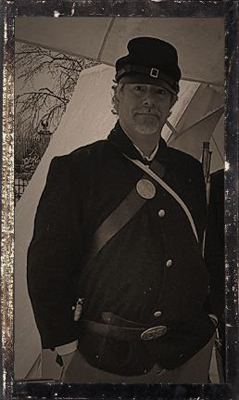
Private
Commissary Sgt.
Paul Brinkman
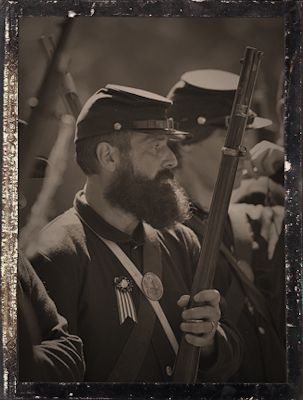
Commissary
John Roarty
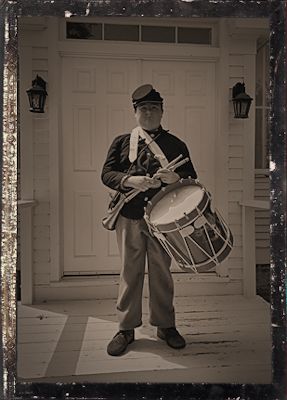
Private
John M. Flockton
real name
Benjamin Atkinson
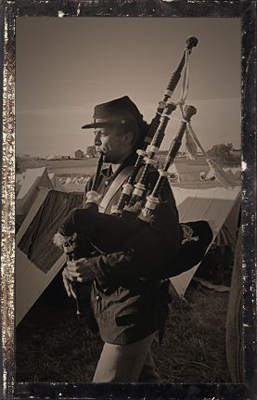
Private
Alexio Barboza
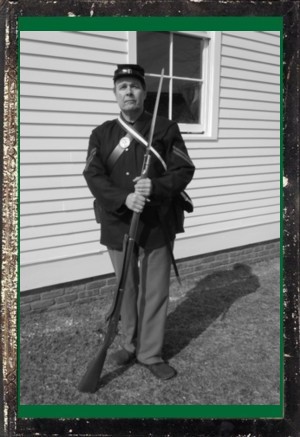
Private
Charles Armstrong
real name
David Courtenay
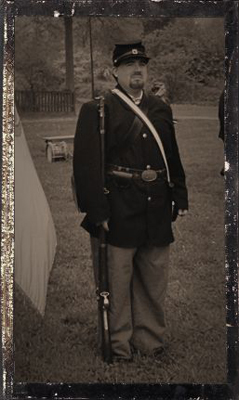
Private
Greg Frank
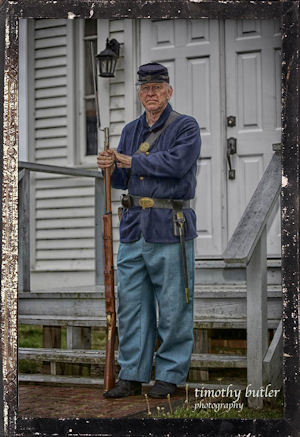
Private
Charles Dubet
real name
Bill Hague
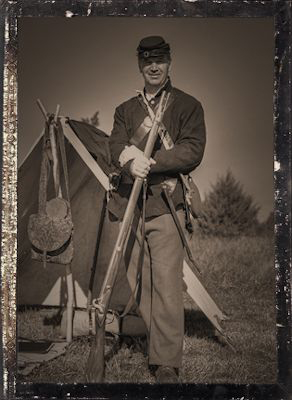
Private
Timothy Magee
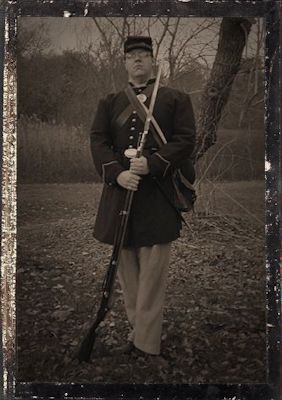
Private
(Historian)
Justin Parker
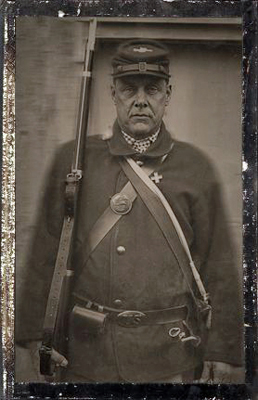
Private
David Dilse Smith
real name
Robert Pellegrino
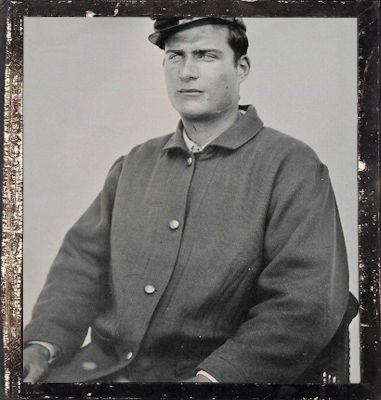
Private
Mark Schmidt
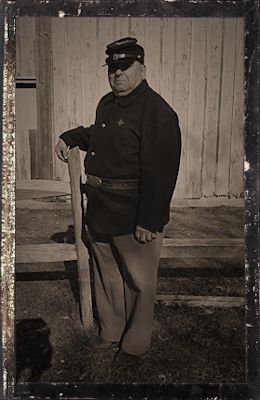
Private
Graham Sherret
real name
Robert Zubiller
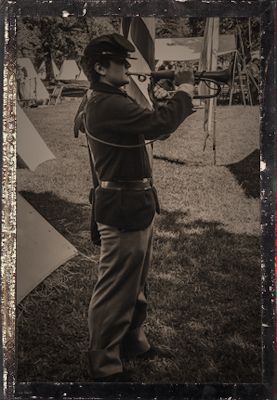
Private
Lachlan Granger
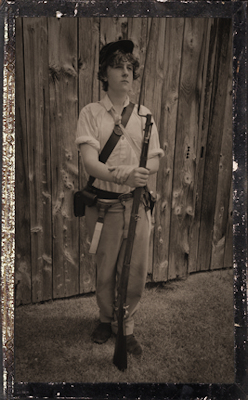
Private
Griffin Pomisel
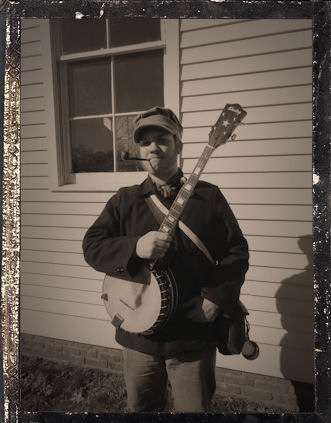
Musician & Civilian
Ambrose Arnold
real name
Max Rowland
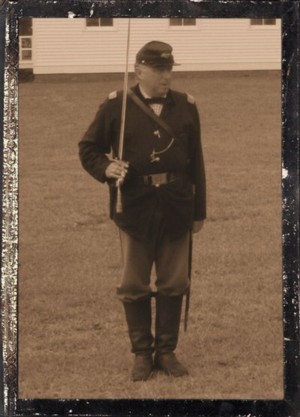
Major
(Retired)
Lewis Peck
real name
Joe Bilardello

Reserves
Eric Seemann
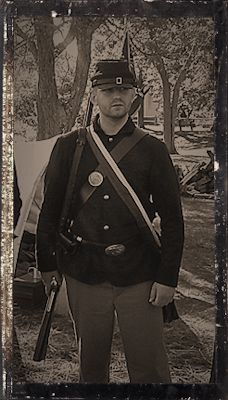
Reserves
Joseph Tilesio
During the Civil War new recruits entering the ranks were often called 'Fresh Fish' and had to earn the respect of their comrades by 'Seeing the Elephant' meaning honorably fighting in battle. Once a new member passes one year on probation the fishy reference cease and with a favorable vote into our Company they can be called an 'Old Salt', 'Veteran', or at least some upright walking land animal (two or four footed)





























